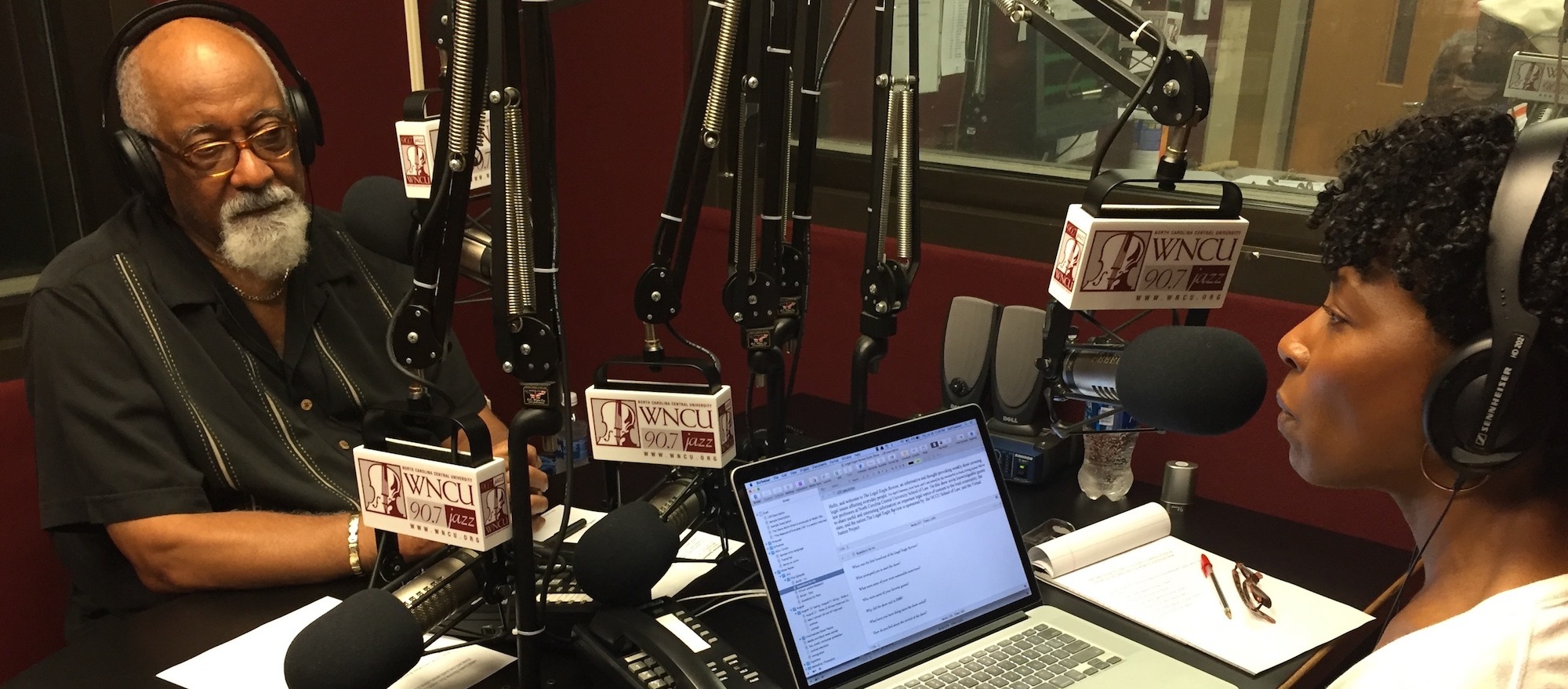
The Legal Eagle Review is an informative and thought-provoking weekly radio show and podcast where the show hosts, NCCU law professors Irv Joyner and April Dawson, talk with guest experts and discuss current legal and political issues affecting everyday people in Durham, the surrounding community, and the state. The show airs on WNCU 90.7 FM on Sundays from 7-8p. The Legal Eagle Review is sponsored by the North Carolina Central University School of Law, and the Virtual Justice Project.
Episodes

Sunday Jan 19, 2020
Legacy of Martin Luther King, Jr.
Sunday Jan 19, 2020
Sunday Jan 19, 2020
In recognition of the MLK Day of Service Federal Holiday which commemorates Dr. Martin Luther King, Jr.’s birth, we talk with Ted Shaw, UNC School of Law Julius L. Chambers Distinguished Professor of Law and Director of the Center for Civil Rights and Jarvis Hall, Professor of Political Science at North Carolina Central University.

Sunday Dec 22, 2019
NC Justice Thomas Ruffin, State v. Mann, and Honest History Telling
Sunday Dec 22, 2019
Sunday Dec 22, 2019
On this show, talk about NC Supreme Court Chief Justice Thomas Ruffin, the State v. Mann decision he authored, and the need for the honest and complete recounting of history. We talk with Eric Muller, the Dan K. Moore Distinguished Professor in Jurisprudence and Ethics at UNC-Chapel Hill Law School and James Williams, retired Orange County Chief Public Defender and avid history buff.

Sunday Dec 08, 2019
Comcast v. National Association of African American-Owned Media
Sunday Dec 08, 2019
Sunday Dec 08, 2019
The Supreme Court recently heard oral arguments in Comcast v. National Association of African American-Owned Media. This is a discrimination suit brought by the African American actor and comedian Byron Allen against Comcast for failure to carry his network. Allen alleges that the reason Comcast decided not to carry his network was based on race, and Allen is suing under the Civil Rights Act of 1866. During this show, we talk about the Civil Rights Act of 1866, and how the Supreme Court's decision may affect the future of the country's oldest civil rights statute with Don Corbett, Professor of Law at North Carolina Central University School of Law.

Sunday Dec 01, 2019
2020 Census
Sunday Dec 01, 2019
Sunday Dec 01, 2019
The United States Constitution requires a census of the American population every ten years, and the next census count will occur in April 2020. We discuss the need for an accurate census count and efforts to ensure full participation with Stacey Carless, Executive Director of the NC Counts Coalition, and Juliana Cabrales, Mid-Atlantic Director of Civic Engagement for the National Association of Latino Elected Officials Educational Fund (NALEO).

Sunday Nov 24, 2019
Holiday Scams, Identity Theft, and Internet Safety
Sunday Nov 24, 2019
Sunday Nov 24, 2019
Every year, thousands of North Carolina citizens suffer significant financial loss when they find that they are a victim of a scam, identity theft, or both. Consumers are at even greater risk of these threats during the holiday season. So as the holiday season approaches, we wanted to talk about how people can protect themselves from scams and identity theft, and stay safe on the internet. Joining us for this discussion are Attorney Hugh Harris, Outreach & Policy Counsel for the Public Protection Division of the North Carolina Department of Justice, and Natalie Wood, Outreach Specialist with the North Carolina Department of Justice.

Sunday Nov 17, 2019
Juvenile Justice in North Carolina
Sunday Nov 17, 2019
Sunday Nov 17, 2019
We talk with Dorothy Hairston Mitchell, Clinical Assistant Professor at NCCU School of Law and the Supervising Attorney of the NCCU Law Juvenile Law Clinic, and Austine Long, Juvenile Project Attorney with the North Carolina Office of the Juvenile Defender about juvenile justice including Raise the Age legislation in North Carolina.

Sunday Nov 10, 2019
African American Veterans
Sunday Nov 10, 2019
Sunday Nov 10, 2019
On this show, we talk about African American veterans and the vital role they played in the civil rights movement with Duke University History Professor Adriane Lentz-Smith, author of “Freedom Struggles: African Americans and WWI.”

Sunday Nov 03, 2019
Sunday Nov 03, 2019
And on October 8, 2019, NCCU Law Alum Ya Lui became the first Asian American elected to the Cary Town Council. Dr. Lui talks about her decision to run, her campaign, and her historic win.

Sunday Oct 27, 2019
Native American Issues in North Carolina
Sunday Oct 27, 2019
Sunday Oct 27, 2019
On the second Monday in October, many cities and states celebrate Indigenous Peoples' Day, instead of the federally recognized but controversial Columbus Day holiday. Indigenous Peoples' Day has been officially recognized in North Carolina since 2017 when Gov. Cooper issued a proclamation declaring the second Monday in October as Indigenous Peoples' Day in the state. He has issued a proclamation every year. North Carolina is home to more than 122,000 American Indians and has eight historic tribes. On this show, we talk about the rich culture of Native Americans in the state and the legal issues facing their communities with guests Greg Richardson, Executive Director of the NC Commission of Indian Affairs, Native American attorney Heather McMillan Nakai, and Joshua Richardson, third-year law student, SBA President, and President of the Native American Law Students Association.

Sunday Sep 22, 2019
Federal Higher Education Policies and the Impact on American Women
Sunday Sep 22, 2019
Sunday Sep 22, 2019
In this episode, we have a discussion with Dr. Deondra Rose about her book “Citizens by Degree: Higher Education Policy and the Changing Gender Dynamics of American Citizenship.” Dr. Rose is an Assistant Professor at the Sanford School of Public Policy with a secondary appointment in the Department of Political Science. Also, joining the discussion is NCCU Law professor and Mayor of Carrboro, N.C., Lydia Lavelle.
